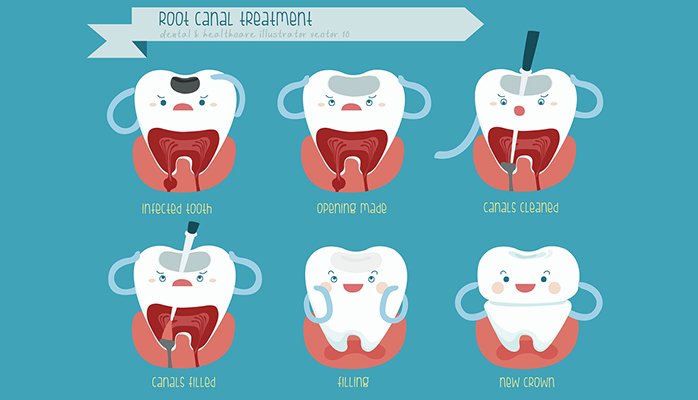Managing Pain After a Root Canal: Effective Strategies
Are you experiencing excruciating pain after undergoing a root canal procedure? Don’t fret, as there are effective strategies to manage and alleviate your discomfort.
From over-the-counter medications to natural remedies, there are various options available to help you find relief.
In this discussion, we will explore these effective strategies that can provide you with the much-needed comfort and aid in your healing process.
So, if you’re tired of the persistent pain and seeking ways to find solace, keep reading to discover the solutions that can bring you relief.
Understanding the Root Canal Procedure
To fully understand the root canal procedure, it’s important to know the steps involved and how it can help alleviate dental pain.
First, your dentist will start by numbing the area around the tooth with a local anesthetic. This ensures that you won’t feel any pain during the procedure.
Once the area is numb, your dentist will create a small hole in the tooth to access the pulp chamber.
The next step involves removing the infected or damaged pulp from the tooth. This is done using special tools and techniques to ensure that all the infected tissue is completely removed.
After that, your dentist will clean and disinfect the inside of the tooth to get rid of any bacteria or debris.
Once the tooth is thoroughly cleaned, it will be filled and sealed with a rubber-like material called gutta-percha to prevent any further infection.
In some cases, a temporary filling may be placed until a permanent restoration, such as a crown, can be placed on the tooth.
Understanding the steps involved in a root canal procedure can help alleviate any concerns or fears you may have and provide you with a clearer understanding of how it can effectively relieve dental pain.
Managing Pain With Over-The-Counter Medications
You can manage pain after a root canal by using over-the-counter medications. These medications are easily accessible and can provide effective relief from discomfort.
Nonsteroidal anti-inflammatory drugs (NSAIDs) such as ibuprofen and naproxen sodium are commonly recommended for managing post-root canal pain. These medications work by reducing inflammation and relieving pain. It’s important to follow the recommended dosage instructions and consult with your dentist or pharmacist if you have any concerns or questions.
Acetaminophen can also be used to alleviate pain, although it may not have the same anti-inflammatory effects as NSAIDs. However, it’s important to note that over-the-counter medications may not be sufficient for severe pain, and stronger prescription pain medications may be necessary in such cases.
Additionally, it’s important to consider any allergies or sensitivities you may have to certain medications and consult with your dentist or pharmacist before taking any over-the-counter medications.
Applying Cold Compresses for Immediate Relief
To find immediate relief after a root canal, applying cold compresses can be highly beneficial. Not only can cold compresses help reduce swelling, but they can also numb the area and alleviate pain.
To properly apply a cold compress, simply wrap ice or a cold pack in a cloth and gently press it against the affected area for 10-15 minutes at a time.
Cold Compress Benefits
Applying a cold compress can provide immediate relief for managing pain after a root canal. By placing a cold compress on the affected area, you can numb the nerves and reduce inflammation, helping to alleviate discomfort.
The cold temperature constricts blood vessels, which can decrease blood flow and minimize swelling. Additionally, the cold sensation can distract your brain from focusing on the pain, providing a sense of relief.
To apply a cold compress, you can use a bag of ice wrapped in a thin cloth or a gel-filled cold pack. Remember to only apply the cold compress for short intervals, around 15 minutes at a time, and take breaks in between to prevent skin damage.
Proper Cold Compress Application
A cold compress can be applied for immediate relief, numbing the nerves and reducing inflammation after a root canal.
To properly apply a cold compress, start by wrapping a few ice cubes in a thin towel or placing them in a plastic bag. Gently press the compress against the affected area for about 10 to 15 minutes. Remember to never apply ice directly to the skin, as it can cause frostbite.
The cold temperature will help constrict blood vessels, reducing swelling and numbing the area. This can provide temporary relief from pain and discomfort.
It’s important to note that while a cold compress can provide immediate relief, it isn’t a long-term solution. Make sure to consult your dentist for further treatment options.
Using Natural Remedies to Ease Discomfort
If you’re looking for natural ways to alleviate discomfort after a root canal, there are several remedies that can help. These natural remedies can provide relief and promote healing without relying on medication.
Here are three effective remedies to consider:
– Clove oil: Clove oil has been used for centuries for its analgesic properties. Applying a small amount of clove oil directly to the affected area can help numb the pain and reduce inflammation. This natural remedy can be easily found in most health food stores or online.
– Saltwater rinse: A saltwater rinse is a simple yet effective way to reduce pain and swelling after a root canal. Mix half a teaspoon of salt in a glass of warm water and gently swish it around your mouth for about 30 seconds before spitting it out. This rinse can help cleanse the area and promote healing.
– Tea tree oil: Tea tree oil has antimicrobial and anti-inflammatory properties that can help soothe discomfort after a root canal. Dilute a few drops of tea tree oil in a carrier oil, such as coconut oil, and apply it to the affected area using a cotton swab. This can help reduce pain and prevent infection.
Practicing Proper Oral Hygiene for Faster Healing
To promote faster healing and prevent complications, it’s important to maintain proper oral hygiene after a root canal. Taking care of your mouth is crucial during this time to ensure a smooth recovery process. Here are some effective strategies to practice proper oral hygiene:
– Firstly, make sure to brush your teeth gently twice a day with a soft-bristled toothbrush. This will help remove any food particles or plaque that may have accumulated around the treated area. Be careful not to apply too much pressure as it can cause discomfort or damage to the healing tooth.
– Secondly, flossing is equally important. Use a gentle, back-and-forth motion to clean between your teeth, including the treated tooth. This will help remove any debris that may have gotten trapped and promote a healthy gum line.
– Additionally, it’s crucial to rinse your mouth with a saltwater solution after meals. Mix half a teaspoon of salt with eight ounces of warm water and swish it around your mouth for about 30 seconds. This will help reduce inflammation and keep the area clean.
– Lastly, maintain regular dental check-ups. Your dentist will be able to monitor your healing progress and address any concerns promptly.
When to Seek Professional Help for Persistent Pain
If you’re experiencing persistent pain after a root canal, it’s important to know when to seek professional help.
Chronic pain management is crucial in these cases, as it can affect your daily life and overall well-being.
Make sure to schedule a consultation with your dentist to address any concerns and find the appropriate solution for your pain.
Chronic Pain Management
Are you experiencing persistent pain? Seek professional help for effective chronic pain management.
Chronic pain can greatly impact your quality of life and make even simple tasks challenging. Here are three reasons why seeking professional help for your persistent pain is crucial:
– Accurate diagnosis: A healthcare professional specializing in chronic pain management can accurately diagnose the underlying cause of your pain. This is crucial as it ensures that you receive the appropriate treatment for your specific condition.
– Tailored treatment plan: Professionals in chronic pain management can develop a personalized treatment plan based on your specific needs. They can combine various therapies and medications to provide you with the most effective pain relief.
– Emotional support: Dealing with chronic pain can be emotionally draining. Seeking professional help allows you to have support from experts who understand the physical and emotional impact of chronic pain, ensuring you receive the necessary support and guidance throughout your pain management journey.
Consultation With Dentist
If persistent pain lingers after a root canal, it’s essential to consult with a dentist for professional help. While some discomfort is normal after the procedure, persistent or severe pain could indicate an underlying issue that needs attention.
Ignoring the pain or attempting to self-medicate may only worsen the situation. By seeking professional help, you can ensure that the dentist evaluates the root canal site and identifies any potential complications, such as an infection or a failed root canal.
The dentist may conduct further tests, such as an X-ray or a pulp vitality test, to determine the cause of the pain. They can then recommend appropriate treatment options to alleviate your discomfort and resolve the underlying issue.
Frequently Asked Questions
How Long Does a Root Canal Procedure Usually Take?
A root canal procedure usually takes about one to two hours. During the procedure, your dentist will remove the infected pulp from your tooth and clean the root canals. They’ll then fill the canals with a rubber-like material called gutta-percha before sealing the tooth.
This process may require multiple appointments depending on the complexity of the case. It’s important to follow your dentist’s instructions for managing pain and discomfort after the procedure.
Can I Eat Normally After a Root Canal?
After a root canal, you may experience some discomfort, but it’s generally okay to eat normally. It’s best to start with soft foods and gradually reintroduce harder foods as you feel more comfortable. Avoid chewing on the side of the mouth where the procedure was done.
Over-the-counter pain relievers can help manage any lingering pain. If you have any concerns or severe pain, it’s important to consult with your dentist for further guidance.
Are There Any Specific Foods or Drinks I Should Avoid After a Root Canal?
After a root canal, it’s important to be mindful of what you eat and drink. Certain foods and drinks can irritate the treated area and prolong the healing process.
It’s best to avoid hard, crunchy, or sticky foods that may dislodge the temporary filling. Additionally, hot or cold drinks can cause sensitivity, so it’s wise to consume them in moderation. Stick to soft, easy-to-chew foods and lukewarm beverages to aid in your recovery.
How Long Will the Pain Last After a Root Canal?
How long will the pain last after a root canal?
Well, it’s common to experience some discomfort after the procedure. However, the level and duration of pain can vary from person to person.
Generally, the pain should start to subside within a few days. Over-the-counter pain medication can help manage the discomfort during this time.
If the pain persists or becomes severe, it’s important to reach out to your dentist for further evaluation and guidance.
Is It Normal to Experience Sensitivity to Hot or Cold Temperatures After a Root Canal?
Yes, it’s normal to experience sensitivity to hot or cold temperatures after a root canal.
This sensitivity usually lasts for a few days or weeks, but it should gradually improve over time.
To manage this discomfort, you can try using over-the-counter pain relievers, avoiding extremely hot or cold foods and drinks, and practicing good oral hygiene.
If the sensitivity persists or becomes severe, it’s important to consult your dentist for further evaluation and treatment.
Conclusion
In conclusion, managing pain after a root canal can be effectively done through various strategies.
Over-the-counter medications, cold compresses, natural remedies, and maintaining proper oral hygiene all contribute to easing discomfort and promoting faster healing.
However, if persistent pain persists, it’s crucial to se read review ek professional help to address any underlying issues.
Remember to consult with your dentist for personalized guidance and recommendations.

Welcome to my website! I am Patrick Oxenham, a dedicated and passionate Pediatric Dentist with years of experience in providing comprehensive dental care for children. I am thrilled to share my knowledge and expertise in smile restoration methods, aesthetic dentistry updates, and gum health and grafting with you.

